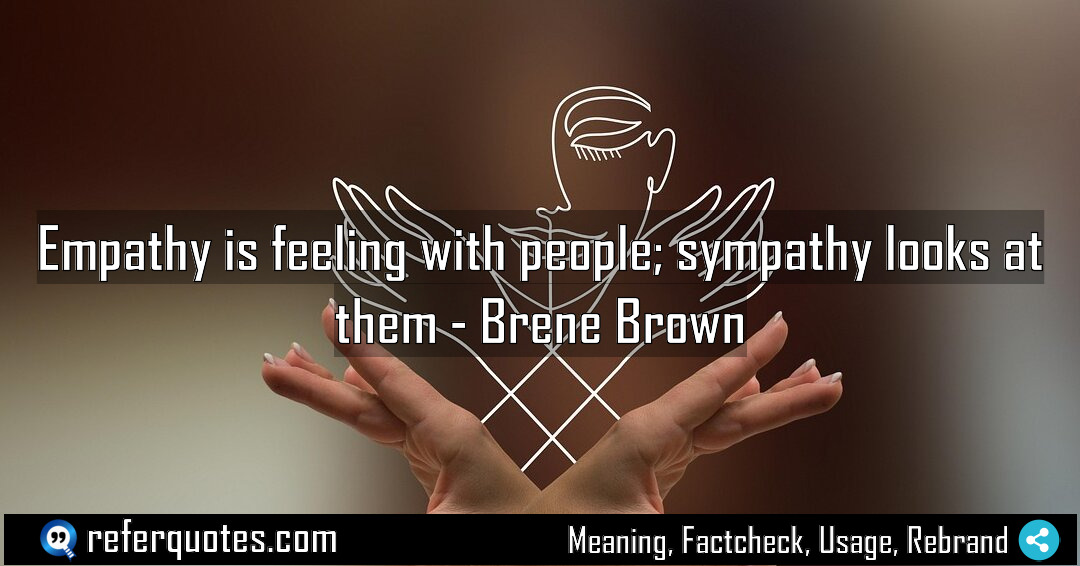Empathy is feeling with people; sympathy looks at them. This is one of those quotes that completely reframes how we connect with others. It’s not just semantics—it’s a fundamental shift in perspective that changes everything from leadership to personal relationships. Once you grasp this distinction, you start seeing it everywhere.
Share Image Quote:Table of Contents
Meaning
At its core, this quote is about the difference between connection and observation. Empathy gets in the trench with someone. Sympathy stands on the edge and looks down.
Explanation
Let me break this down because it’s subtle but so powerful. I’ve seen this play out in boardrooms and living rooms. Empathy is an active, vulnerable choice. It’s saying “I don’t know what to say either, but I’m here with you in this.” It’s a shared feeling. Sympathy, on the other hand, maintains separation. It’s the “At least…” statements. “At least you have your health.” “At least it wasn’t worse.” It’s looking at someone’s pain from a safe distance, often with a silver lining. The real magic happens when we stop trying to fix and start trying to feel with people. That’s where true connection lives.
Quote Summary
| Context | Attributes |
|---|---|
| Original Language | English (3668) |
| Category | Education (260) |
| Topics | empathy (143) |
| Literary Style | contrast (6), minimalist (442) |
| Emotion / Mood | clarifying (20), warm (182) |
| Overall Quote Score | 72 (65) |
Origin & Factcheck
This comes straight from Brené Brown’s 2004 book “Women & Shame: Reaching Out, Speaking Truths,” published in the United States. People often misattribute similar sentiments to other authors, but this specific phrasing and the deep research behind it are pure Brené. She built this distinction from years of qualitative data on vulnerability and connection.
Attribution Summary
| Context | Attributes |
|---|---|
| Author | Brene Brown (257) |
| Source Type | Book (4032) |
| Source/Book Name | Women & Shame: Reaching Out, Speaking Truths (39) |
| Origin Timeperiod | 21st Century (1892) |
| Original Language | English (3668) |
| Authenticity | Verified (4032) |
Author Bio
Dr Brene Brown is the author of books such as Daring Greatly and The Power of Vulnerability. The TED talk and Netflix production based on her research reached out to millions of audience. She researches effects of courage and vulnerability in shaping people's work and relationships. She leads the Brené Brown Education and Research Group and provides evidence-based insights into practical tools to help people train themselves
Official Website |Facebook | X | Instagram | YouTube |
Where is this quotation located?
| Quotation | Empathy is feeling with people; sympathy looks at them |
| Book Details | Publication Year: 2004; (other edition details unknown) |
| Where is it? | Approximate page from 2004 Hazelden edition, Chapter: Empathy vs Sympathy |
